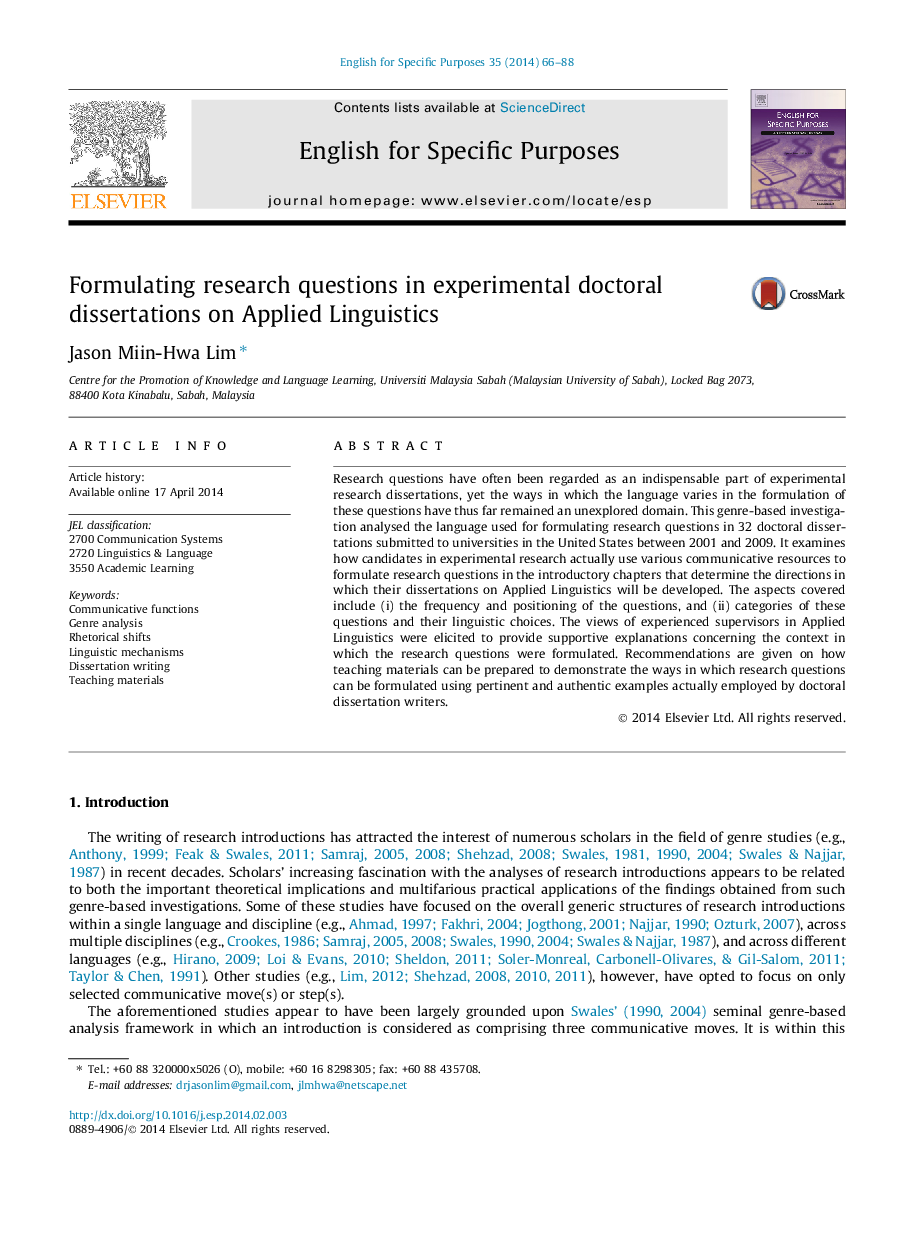| Article ID | Journal | Published Year | Pages | File Type |
|---|---|---|---|---|
| 355368 | English for Specific Purposes | 2014 | 23 Pages |
•Doctoral candidates deploy research questions in proximity to purposive or descriptive announcements.•Meaningful intra-step shifts are strategically deployed by writers to develop their research questions.•The gamut of research questions employed is far broader than the limited range suggested in guidebooks.•Writers use a wide spectrum of language mechanisms to indicate the tracks along which their dissertations will proceed.•Polar questions pragmatically engage interpretations that resemble those for three categories of wh-questions.
Research questions have often been regarded as an indispensable part of experimental research dissertations, yet the ways in which the language varies in the formulation of these questions have thus far remained an unexplored domain. This genre-based investigation analysed the language used for formulating research questions in 32 doctoral dissertations submitted to universities in the United States between 2001 and 2009. It examines how candidates in experimental research actually use various communicative resources to formulate research questions in the introductory chapters that determine the directions in which their dissertations on Applied Linguistics will be developed. The aspects covered include (i) the frequency and positioning of the questions, and (ii) categories of these questions and their linguistic choices. The views of experienced supervisors in Applied Linguistics were elicited to provide supportive explanations concerning the context in which the research questions were formulated. Recommendations are given on how teaching materials can be prepared to demonstrate the ways in which research questions can be formulated using pertinent and authentic examples actually employed by doctoral dissertation writers.
